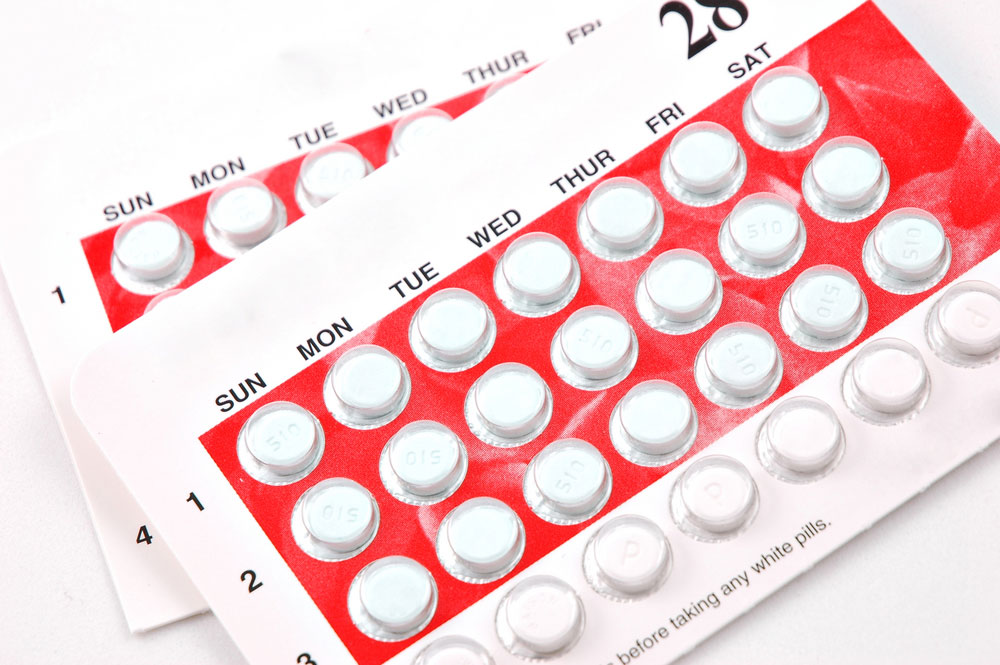Birth Control Patch and Ring May Raise Blood Clot Risk

Birth control in the form of a vaginal ring or skin patch may bring a higher risk of blood clots than birth control pills, a new study from Denmark suggests.
In the study examining women over a 10-year period, a blood clot was twice as likely to appear in those who used a vaginal ring as in those who took birth control pills containing levonorgestrel, a synthetic form of the female hormone progesterone. And women who used a hormonal skin patch were 2.5 times more likely to have a blood clot than women taking those pills.
Birth control pills in general are known increase women's risk of blood clots, but the study adds to a growing body of evidence that some forms of hormonal birth control increase the risk of clots more than others do.
For any type of contraception that contains estrogen and progesterone, the risk of blood clots may have to do with the type of progesterone the pill contains, said Susan Jick, an epidemiologist at Boston University who has studied the safety of oral contraceptives.
Because the findings pertaining to the vaginal ring and patch are relatively new, more research is needed to confirm them, Jick said.
However, experts emphasized that the risk of blood clots is very small from any type of hormonal birth control.
"What women really need to know about all of these methods is that, overall, their benefits overwhelmingly outweigh their risks," said Dr. Elizabeth Raymond, a senior medical associate at Gynuity Health Projects, an organization that aims to make birth control safer and more widely accessible. Hormonal birth control is highly effective in preventing pregnancy, which comes with its own risks, Raymond said, including an increased risk of blood clots.
Get the world’s most fascinating discoveries delivered straight to your inbox.
Blood clot risk
In the new study, Øjvind Lidegaard of the University of Copenhagen and colleagues analyzed information on more than 1.6 million women between ages 15 and 49 who were followed from 2001 to 2010.
During the study period, about 5,200 women had a blood clot.
Among women who were not using hormonal contraceptives, there were two cases of blood clots yearly per 10,000 women. For women taking oral contraception with levonorgestrel, the rate of incidence tripled to six cases yearly.
For women using vaginal rings, there were about eight cases yearly per 10,000 women, and among women using birth control patches, about 10 cases yearly per 10,000 women.
Women who used progestogen-only intrauterine devices, or progestogen-only birth control implants, did not have an increased risk of blood clots compared with women not using hormonal contraception.
The results held after the researchers took into account factors such as age that could affect a women's blood clot risk. However, the researchers were not able to account for everything that could affect the risk, such as weight, Raymond said.
Convenience factor
Last month the Food and Drug Administration said newer birth control pills such as Yaz and Yasmin that contain drospirenone, another form of progesterone, would carry revised labels indicating the pills may increase the risk of blood clots more than older types of birth control pills containing levonorgestrel.
Women have many considerations when they choose a birth control method, including the cost, availability and convenience. "Some women have trouble remembering to take pills," she added, and might be able to use a ring or patch more consistently.
Dr. Elizabeth Poynor, a gynecologist and pelvic surgeon at Lenox Hill Hospital in New York City, said women should speak with their health care provider about what form of hormonal contraception is best for them. Women with a family history of blood clots or stroke may be at increased risk for blood clots and should discuss this, Poynor said.
The study appears today (May 10) in the British Medical Journal.
Pass it on: Some forms of hormonal birth control increase the risk of blood clots more than others, but all are effective at preventing pregnancy.
Follow MyHealthNewsDaily staff writer Rachael Rettner on Twitter @RachaelRettner. Find us on Facebook.

Rachael is a Live Science contributor, and was a former channel editor and senior writer for Live Science between 2010 and 2022. She has a master's degree in journalism from New York University's Science, Health and Environmental Reporting Program. She also holds a B.S. in molecular biology and an M.S. in biology from the University of California, San Diego. Her work has appeared in Scienceline, The Washington Post and Scientific American.
 Live Science Plus
Live Science Plus





